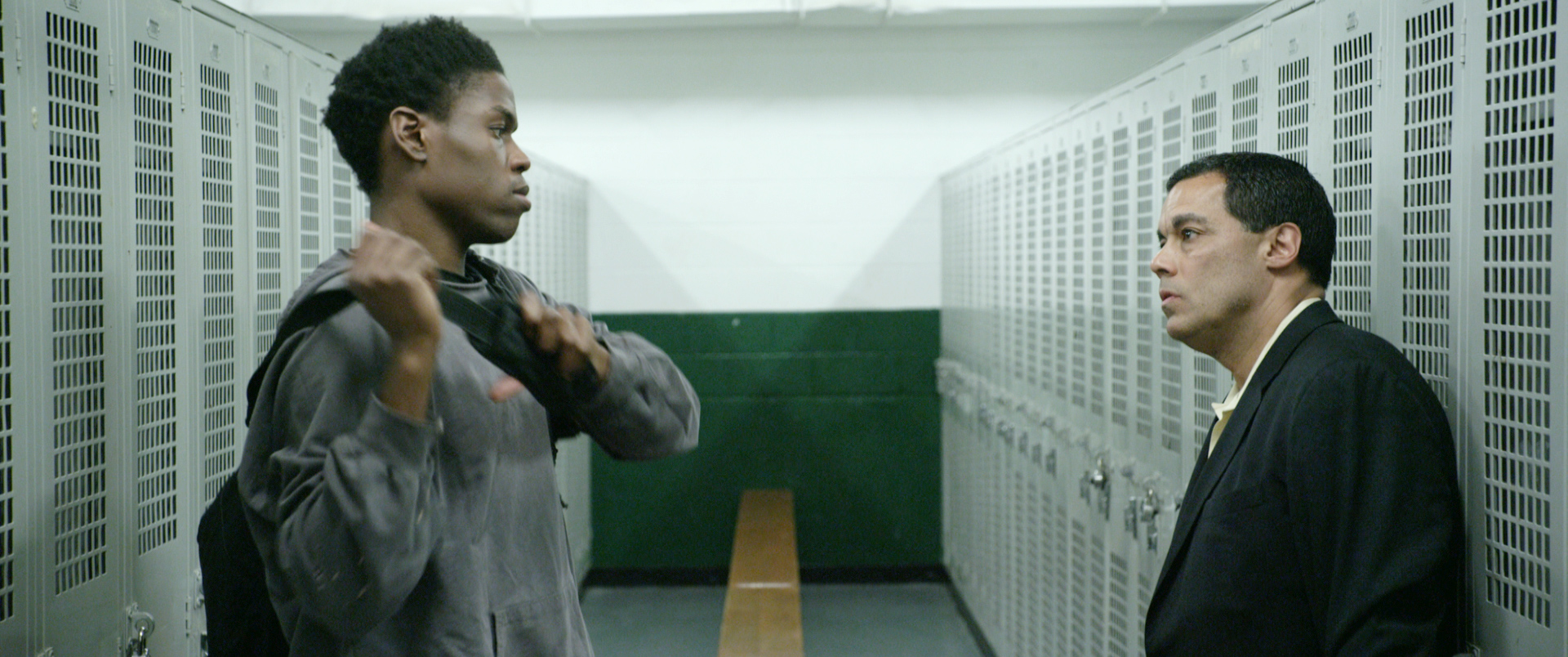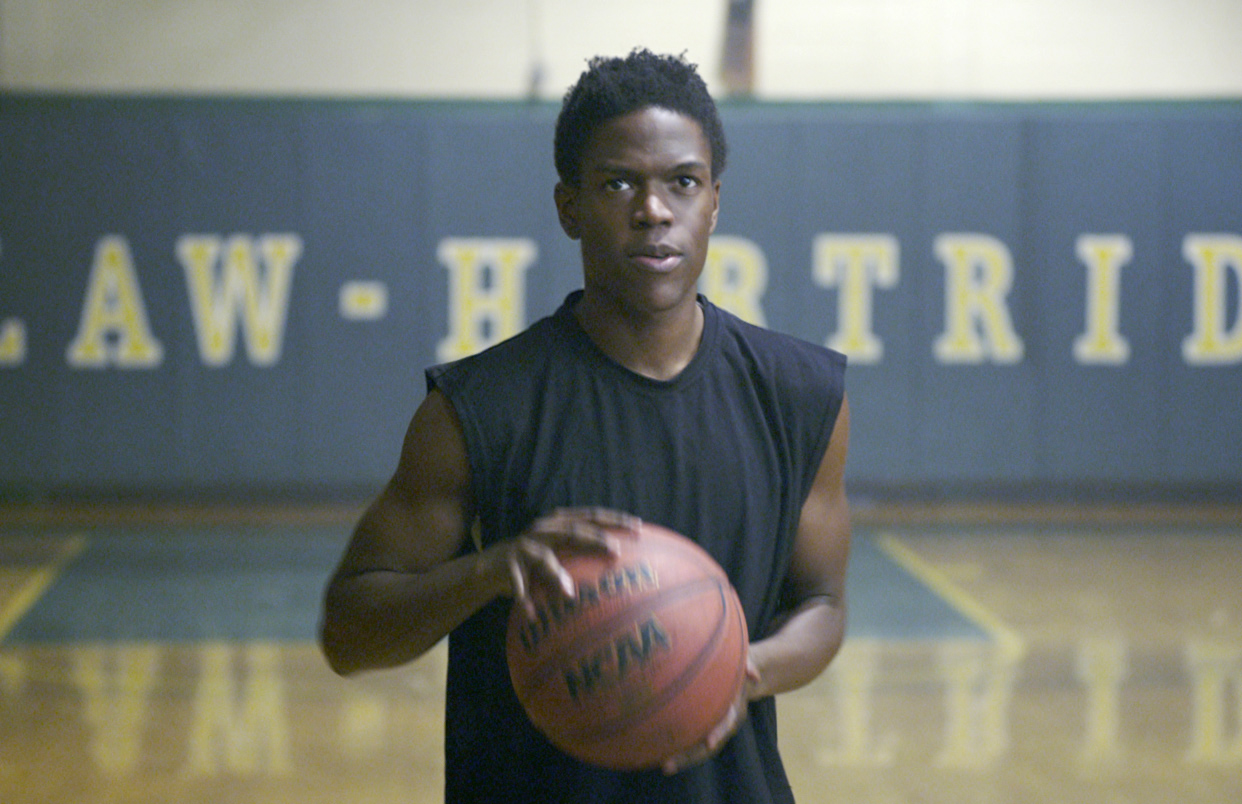Director Ryan Koo Discusses Basketball Films “Amateur” and “Manchild”
10.11.2013
SPORTS
Hoop Dreams, White Men Can’t Jump, Above The Rim, Blue Chips and He Got Game are generally considered the standard for modern-day basketball films. With the exception of the critically acclaimed, award-winning documentary Hoop Dreams, which followed two Chicago-area basketball players through their four years of high school basketball, none accurately convey the basketball experience for the average person. Enter Ryan Koo’s short film Amateur, a well-received Internet hit, and his forthcoming follow-up, Manchild, which is still in early stages of production. In both films, Koo is looking to a point that in large part remains taboo: the underworld of youth basketball that is filled with money, runners, agents, lies, and promises. While both stories are fiction, they are absolutely loosely based on things that happen currently in the culture of youth basketball.
To gain an audience and improve funding for Manchild, Koo’s still-in-progress full-length feature film, he created Amateur, a short film that sets the stage and introduces the culture and some key figures. Life+Times spoke with Koo recently to discuss both films.

Life+Times: Give a brief synopsis of Amateur and Manchild, and how the films are related to one another.
Ryan Koo: As a life-long basketball player and fan, I knew I wanted to make a basketball film and I felt that there really haven’t been that many great basketball films made. I thought this was an opportunity to make something that was genuine, compelling, that wasn’t the Hollywood version of the story. The thing that interested me was how young recruiting has gotten with the internet, highlight videos, and the NCAA lowering the age limit on who’s considered a prospect. That was my in to wanting to make a feature about basketball. One of the problems with making an independent basketball feature film is that it’s not cheap. Staging basketball in a gym, extras, the action, to do that right costs money. So I [thought], “Was was the thing I could do to show my vision for the feature, show that I know what I’m doing as a first-time feature director and that I understand the sport?”, and that’s how the short Amateur came about. I wanted to take a minor character in the feature, in this case the recruiter character, and sort of explore his life and find out where he’s coming from – how he ends up recruiting 13-year-old kids in [Manchild].
L+T: Are these stories totally fictitious, or loosely based on things happened or rumored to have happened?
RK:It’s a mix of things that you hear about, thing that I’ve seen, and, as a dramatist, things that you write for characters and for the scenes. I grew up in Durham, North Carolina playing basketball. There are a lot of good basketball schools there and a lot of NBA stars got their start playing for some of the smaller schools in that area. That was the background in why I was interested in it, and that was kind my starting point for doing the research.
L+T: Curtis Cook, Jr. does a great job in Amateur. How did you two find each other?
RK: Curtis is fantastic and that short [film] is a performance piece where you have to be able to believable in a couple different directions. He has to be believable as a basketball star, but he’s also gotta be believable when he’s playing possum and showing vulnerability. As an actor he had to be able to do both. We just did a casting call in New York and we had 20-something actors. Curtis was the third to read and we felt the rest of the day that he was the one to beat. Then the second step was making sure that he could play basketball. At a callback, I found a gym that we could rent for a few hours, and I had the actors play. Basketball is one of those sports that if someone can’t play, you can tell the first second they touch a ball. You can’t fake that, so we had to make sure that he was going to be able to be convincing on the court as well.

L+T: How has the reaction to Amateur been thus far, especially with the twist at the end that throws a curve in the story?
RK: It’s been terrific. It’s been really great and I think, typically, if you made a short film you would submit to festivals and then wait several months to release it. But I felt that, at a film festival, not a high percentage of people are necessarily basketball fans, and I wanted to put it out there in sports culture, so I just released it online for free. It’s possible for a website to just embed it and share it that way and spread the word. Even though it’s online for free, we just played the NBC Universal Short Cuts Festival and won the Audience Award out of 1,400 shorts. So it’s been great to make something, set it free, put it out in the world. In independent film, a lot of times you spend most of your career taking meetings, dealing with conference calls; the act of actually making the film is too rare. I’m just proud of the work and glad to have it out there.
L+T: What’s the timetable for Manchild?
RK: Right now, we’re revising the script and we’re looking to raise financing to make Manchild. The challenge – and one of the reason this film hasn’t been made already – is that when you have a protagonist that’s 13 – a minor – the configuration under which you need to shoot it is very different. You need to have much shorter days, during the summer when school is out, so there are challenges logistically that have made it a difficult first feature to make. Ultimately the plan is that we’ll raise the rest of the financing over the next few months and then be shooting in the summer. So that gives us plenty of time to line up the right cast, financing and do some more polishing of the script.
L+T: Who would you say is your intended audience? Who do you want to see the film and take something away from it?
RK: When you see a fiction basketball feature film – there have been a lot of great documentaries – they don’t feel real to you as a basketball player or fan or coach. You can tell that the actor can’t really play. There’s always this Hollywood version of it. What I want to do with this is make something feels real and authentic, and if you’re a basketball fan and passionate about the sport, you can point to it and say, “That’s how it is, that what’s going on in basketball recruiting and coaching.” I don’t feel like there’s a feature out there that really embodies that right now. So I think the film is important as far as the character and the world and I think it can find an audience beyond basketball fans, but I’ll feel most proud if someone who is passionate about basketball watches it and feels like, “They got it right.” That would be the thing at the end of the day that I’m most proud of.
Get more info about both films and support Manchild here.





